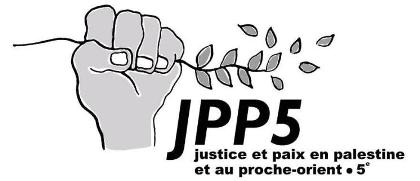Selon l'OSDH, un dépôt, vraisemblablement appartenant au Hezbollah, a explosé hier près de l'aéroport de Damas, qui accuse l'État hébreu.
La Syrie a accusé son voisin israélien d'avoir provoqué une énorme explosion hier en tirant des missiles sur une position militaire, près de l'Aéroport international de Damas, situé à environ 25 km au sud-est de la capitale. Si l'implication israélienne se confirmait, il s'agirait de la deuxième attaque menée en quatre jours par Israël contre des cibles en Syrie.
« Une position militaire au sud-ouest de l'aéroport international de Damas a été la cible à l'aube d'une agression israélienne avec plusieurs missiles (...) », qui a provoqué des dégâts matériels, a indiqué hier l'agence officielle SANA citant une source militaire. Elle n'a pas précisé s'il s'agissait d'une position de l'armée syrienne ou de ses alliés.
L'Observatoire syrien des droits de l'homme (OSDH, basé à Londres) a indiqué qu'un dépôt d'armes, vraisemblablement appartenant au Hezbollah, qui combat auprès du régime syrien, avait explosé près de l'aéroport sans fournir d'autres détails. La plus grande partie de l'entrepôt était vide, a dit l'ONG. Selon la télévision al-Manar du Hezbollah, l'explosion « vraisemblablement due à un raid aérien israélien » s'est « produite dans des dépôts de fuel et un entrepôt ».
L'État hébreu, qui confirme rarement ses nombreuses attaques lancées en territoire syrien depuis le début de la guerre civile en 2011, a laissé entendre qu'il pourrait en être l'auteur. S'il n'a pas confirmé la responsabilité de son pays, le ministre du Renseignement, Israël Katz, a déclaré que la frappe présumée était « cohérente » avec la politique israélienne. L'armée israélienne n'a, elle, fait aucun commentaire.
(Lire aussi : Israël craint la formation d'un "croissant iranien" au Moyen-Orient)
Des frappes destinées au Hezbollah
Ces frappes israéliennes en Syrie ne sont pas une première et « s'inscrivent dans la continuité des frappes précédentes qui n'étaient pas destinées au régime syrien, mais aux modalités d'approvisionnement en armement du Hezbollah, précise à L'Orient-Le Jour Barah Mikail, spécialiste du Moyen-Orient et professeur à la Saint Louis University de Madrid. Ils ont profité d'une fenêtre d'opportunité ».
Le chercheur fait référence notamment à un raid confirmé par Israël à la mi-mars près de Palmyre sur des cibles présentées par Israël comme liées au Hezbollah et qui avait provoqué une riposte de l'armée de l'air syrienne ; un tir de missile en direction d'Israël avait alors été intercepté. Deux jours plus tard, Israël Katz rappelait ce qu'Israël considère comme des « lignes rouges » : le transfert d'armements sophistiqués au Hezbollah et l'ouverture d'un front près du territoire israélien. « En s'établissant durablement en Syrie avec le soutien du Hezbollah, l'Iran veut constituer un axe territorial reliant son territoire au Liban en passant par l'Irak et la Syrie, ce qui ne pourrait que mettre en danger la sécurité d'Israël », lançait-il en février.
Par ailleurs, le contexte de ces dernières semaines est également à prendre en compte. « L'envoi des 59 missiles Tomahawks américains sur la base aérienne d'al-Shayrat (dans la nuit du 6 au 7 avril) a donné le sentiment à Tsahal d'avoir les coudées franches pour intensifier ses frappes contre le Hezbollah en Syrie », explique Didier Leroy, chercheur à la chaire de sociologie de l'École royale militaire de Belgique et au Centre d'études de la coopération internationale et du développement de l'Université libre de Bruxelles, contacté par L'Orient-Le Jour. « Les tensions actuelles entre Israël et le Hezbollah sont à un stade inégalé depuis 2006, et la polarisation de la région pourrait donner une avance à Israël avec le soutien américain », constate Didier Leroy.
En début de soirée, l'armée israélienne a annoncé avoir abattu hier une « cible » au-dessus du plateau du Golan occupé. « Le système de défense aérien Patriot a intercepté une cible au-dessus du plateau du Golan », a affirmé l'armée sur son compte Twitter, sans donner plus de détails. Les médias israéliens ont indiqué que la « cible » était un drone, mais une porte-parole de l'armée a refusé de commenter l'information.
(Pour mémoire : Le Hezbollah « rassuré » sur les développements en Syrie)
Moscou appelle à la « retenue »
De son côté, le Kremlin a appelé hier à la « retenue » et a mis en garde contre une « montée des tensions » suite à ces frappes. « Nous estimons que tous les pays doivent faire preuve de retenue pour éviter une montée des tensions dans une région déjà passablement agitée et appelons au respect de la souveraineté de la Syrie », a déclaré à des journalistes le porte-parole du Kremlin, Dmitri Peskov.
En réponse à la question d'un journaliste sur le fait de savoir si Israël a prévenu ou pas Moscou de l'imminence d'un bombardement, le porte-parole a répondu que la Russie et Israël « échangent des informations via différents canaux ». « Nos états-majors ont un dialogue constant », a ajouté le porte-parole, alors que le ministre israélien de la Défense, Avigdor Lieberman, a rencontré mercredi à Moscou son homologue russe Sergueï Choïgou. M. Peskov répondait à une question impliquant une responsabilité israélienne, mais n'a pas dit que la Russie considérait que l'État hébreu était responsable du bombardement près de l'aéroport international de Damas.






